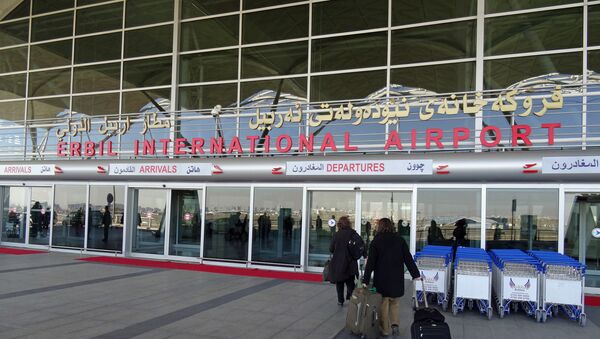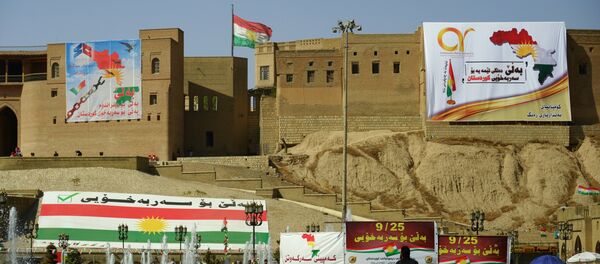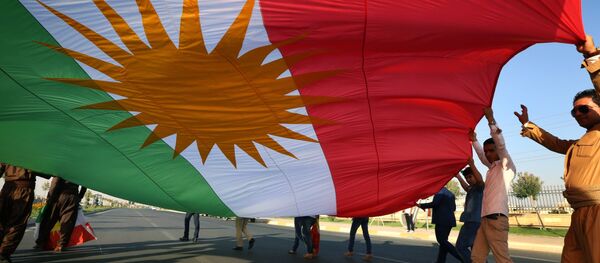The delegation consists of a number of senior officials from the Iraqi Ministry of Finance, and the country's central bank. Headed by Governor Ali Mohsen Al-Alaq, the delegation discussed the "Kurdish Region's revenues, the auditing list of KRG employees, and some other issues," according to the source.
Sputnik requested further details about the negotiations and the potential funding deal from the KRG's PM office, but they were unable to provide any additional information.
Prime Minister Nechirvan Barzani has pushed for negotiations with Baghdad to end the crisis via dialogue and avoid any military escalation, and it seems that progress is finally being made.
"Our problem with Baghdad cannot be resolved with pressure cards, but with the constitution," PM Barzani said last month.
Although these negotiations and the potential deal are encouraging, they're unlikely to provide a long-term solution to the budget dispute, as the deal will only include emergency funding to a limited number of imperative sectors.
Relations between the KRG and Baghdad became further strained after Iraqi Kurdistan held a referendum for independence in September 2017, with over 90 percent of voters voting in favor of independence.
READ MORE: Iraqi Parliament Adopts Year's Budget Amid Protests of Kurds
Iraqi forces subsequently attacked Kurdish Peshmerga troops and retook disputed areas, including the oil-rich city of Kirkuk, which provided the KRG with a stream of revenue — as opposed to funding from the federal government — to pay government employees and fund public services.
He met with US Ambassador to Iraq Douglas Silliman earlier this month to discuss the country's post-war reconstruction and the upcoming elections. The US announced on Monday a US$160 million assistance package to Iraqi Kurdistan's government, in a "clear sign of support from Washington toward the KRG."
PM Barzani has met with a number of other world leaders to pressure Baghdad to come to the negotiating table, but, until now, Iraqi PM Haidar al-Abadi is yet to open Iraqi Kurdistan's airports. Despite promising to reopen the airports and send funding to pay KRG employees in the health and education sectors, he is yet to do so, and is increasingly losing the trust of Iraqi Kurdistan's citizens.




